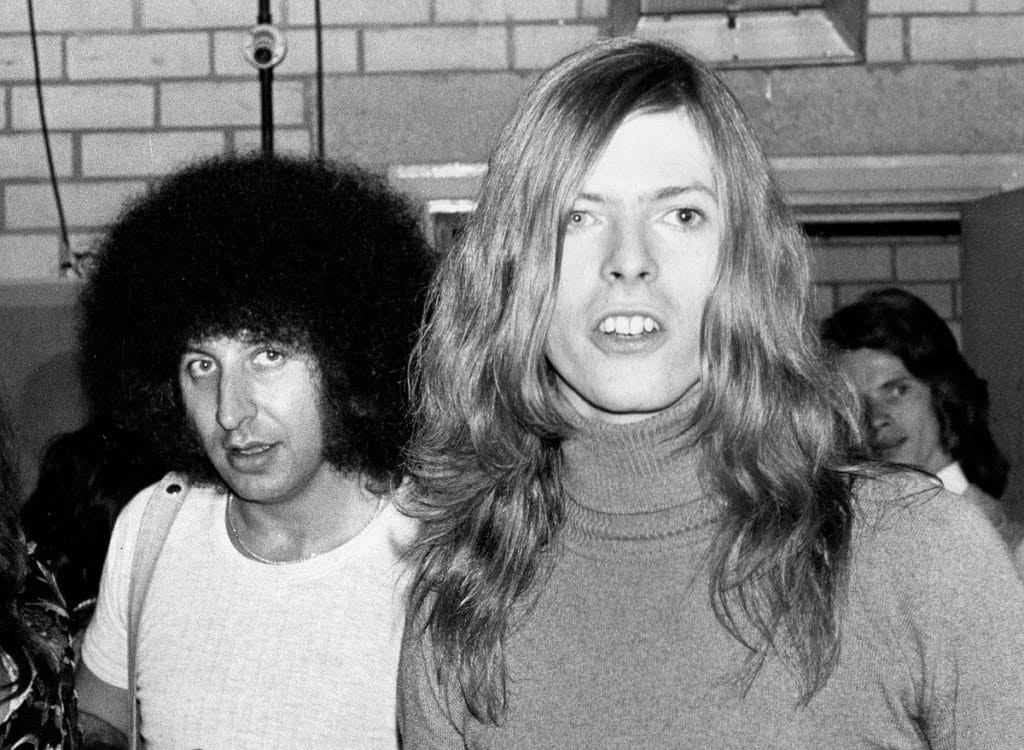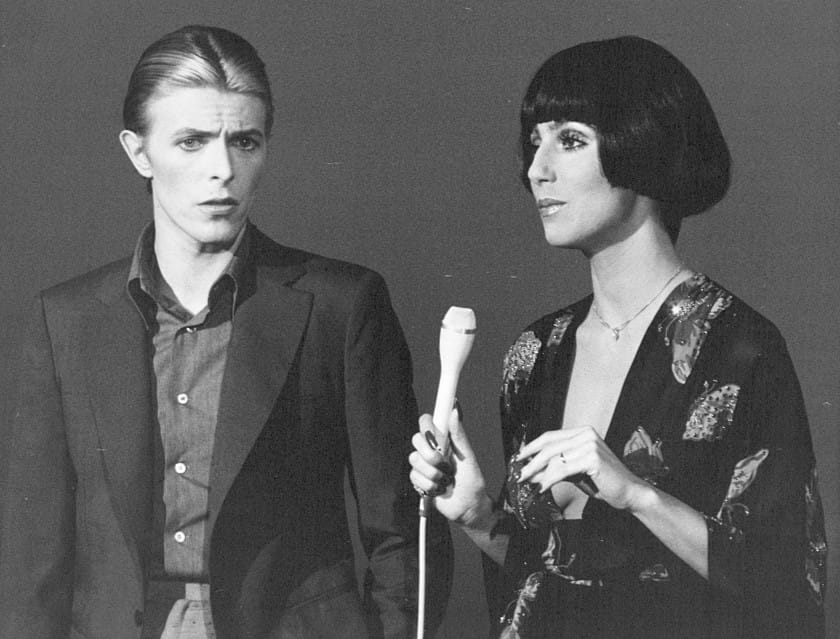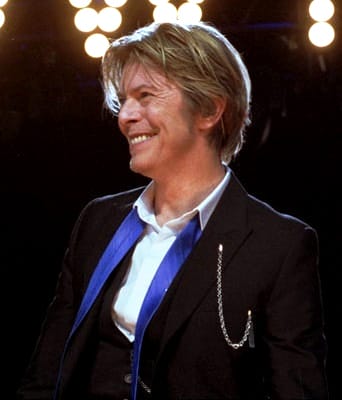David Bowie, a name synonymous with musical metamorphosis, charted a course through the rock universe that was as unpredictable as it was influential. Navigating through his extensive discography to select just ten standout tracks is akin to a sonic odyssey through a constellation of genre-defying brilliance.
Each song chosen here reflects a chapter in Bowie’s illustrious career, where he wasn’t merely performing music but crafting narratives, creating personas, and challenging the very boundaries of artistic expression.
From the enigmatic allure of “Space Oddity” to the pulsating beats of “Let’s Dance,” Bowie’s catalog is a testament to his musical prowess and his unending quest to explore new territories. His songs serve as landmarks in the ever-evolving landscape of rock music, showcasing his exceptional talent in fusing different musical styles with profound lyrical themes.
From The Top, Here Are David Bowie’s 10 Best Tracks
1. “Space Oddity”
From: ‘Space Oddity’ (1969)
“Space Oddity,” a track that transcends time and genre, is a testament to David Bowie’s innovative spirit. At the tender age of 22, Bowie crafted a narrative that wasn’t just a song, but a cinematic experience. The intricate storytelling, depicting the solitary journey of Major Tom in space, is both haunting and captivating. This song wasn’t just ahead of its time; it defined a new era in music, intertwining science fiction with sonic exploration.
Musically, “Space Oddity” is a kaleidoscope of sounds that captures the vastness of space and the intimacy of human emotion. Bowie’s ability to convey the excitement and fear of space exploration, coupled with his unique vocal delivery, makes this song a cornerstone in his illustrious career. It’s not just a song; it’s a journey, a narrative that played a pivotal role in introducing Bowie to the world as a visionary artist.
RELATED: The Very Best Songs That Tell A Story
2. “Changes”
From: ‘Hunky Dory’ (1971)
“Changes” stands as a reflection of Bowie’s ever-evolving persona. The song is a beautifully crafted narrative about transformation and the ever-shifting nature of art and life. Bowie, with his characteristic wit and introspection, delves into themes of reinvention, both personal and artistic. The lyrics are a bold proclamation, almost prophetic, of the myriad artistic phases Bowie would traverse throughout his career.
Musically, the song is a symphony of contrasts – the melodic piano by Rick Wakeman of Yes fame, fused with Bowie’s distinctive vocal style, creates a soundscape that is as eclectic as it is classic. The composition is an artful blend of rock and pop, showcasing Bowie’s ability to blur genre boundaries effortlessly. It’s a song that resonates with the fluidity of identity, a theme that Bowie embodied throughout his life.
3. “Moonage Daydream”
From: ‘Ziggy Stardust’ (1972)
“Moonage Daydream” is a pulsating, electric core of the Ziggy Stardust persona. The song, initially part of Bowie’s Arnold Corns project, found its true identity in the Ziggy Stardust album. It’s a track that encapsulates the raw energy and sexual vibrancy of Bowie’s alter ego. The lyrics are a vivid, almost surreal, portrayal of the otherworldly Ziggy, matched by Mick Ronson’s fiery guitar work.
The song is a theatrical masterpiece, with Bowie’s performance and Ronson’s riffs creating a larger-than-life soundscape. The track’s energy is infectious, drawing listeners into the fantastical world of Ziggy Stardust. It’s a song that not only defined an album but became a defining moment in Bowie’s career, showcasing his genius in storytelling and musical innovation.

4. “Heroes”
From: ‘Heroes’ (1977)
“Heroes,” co-written with Brian Eno, is an anthem that resonates with a sense of hope and subtle irony. Inspired by the song “Hero” by Neu!, Bowie’s rendition is a powerful exploration of the human condition. The song, with its themes of love and aspiration amidst adversity, showcases Bowie’s ability to intertwine complex emotions with profound lyricism.
Musically, the song is a blend of experimental sounds and traditional rock elements. The track embodies the spirit of resilience, a characteristic that Bowie himself epitomized. His performance of “Heroes” at the 2001 Concert for New York City is a poignant reminder of the song’s timeless appeal, uplifting the spirits of those who faced unimaginable tragedy.
You Might Like: Dive Into Prince’s Best Albums
5. “Young Americans”
From: ‘Young Americans’ (1975)
In “Young Americans,” Bowie takes a dive into the world of soul music, showcasing his versatility as an artist. The track is a vibrant mix of saxophone melodies, courtesy of David Sanborn, and a samba-like rhythm. It marks a significant shift in Bowie’s musical journey, transitioning from the glam rock of Ziggy Stardust to a more soulful, introspective style.
The song is not just a musical experiment; it’s a homage to the greats of music. The lyrical reference to the Beatles’ “A Day in the Life” and the collaboration with John Lennon on the album accentuate Bowie’s respect and connection to his musical predecessors. “Young Americans” is a celebration of musical diversity, blending different genres to create something truly unique and quintessentially Bowie.
6. “Ziggy Stardust”
From: ‘Ziggy Stardust’ (1972)
“Ziggy Stardust,” the titular track of Bowie’s groundbreaking album, is a vibrant portrayal of his most famous alter ego. The song is a narrative of Ziggy’s talents and exploits, a character that came to define a generation of music and culture. Mick Ronson’s iconic guitar hook gives the song a distinctive edge, matching Bowie’s lyrical genius.
The song is more than just music; it’s a cultural phenomenon. It encapsulates the spirit of the early ’70s, a time of exploration and rebellion. Bowie’s portrayal of Ziggy Stardust in this song laid the foundation for what would become one of the most iconic characters in music history, influencing artists and fans alike for decades.
7. “Rebel, Rebel”
From: ‘Diamond Dogs’ (1974)
“Rebel, Rebel” is a quintessential glam rock anthem, featuring one of the most iconic guitar riffs in rock history. Bowie, showcasing his multi-instrumental talents, delivers a track that is raw, edgy, and irresistibly catchy. The lyrics, a celebration of individuality and defiance, resonated with a generation seeking to break free from societal norms.
This track serves as a perfect bridge between the rock of the Rolling Stones and the emerging punk scene. It’s a song that encapsulates the rebellious spirit of the ’70s, while also showcasing Bowie’s ability to influence and connect different musical movements. “Rebel, Rebel” is not just a song; it’s an anthem for anyone who has ever felt different or out of place.

8. “Modern Love”
From: ‘Let’s Dance’ (1983)
“Modern Love” stands out as perhaps the best ‘pop song’ in Bowie’s diverse repertoire. From its catchy spoken intro to the infectious chorus, the song is a celebration of pop music in its purest form. The track’s universal appeal is evident, resonating with audiences in dance halls and dive bars alike.
A notable aspect of “Modern Love” is the stellar guitar work by the late Stevie Ray Vaughan, showcasing Bowie’s knack for collaborative genius. The song, part of the critically acclaimed Let’s Dance album, highlights Bowie’s ability to adapt and excel in different musical landscapes, making it a standout track in his illustrious career.
You Might Like: Check Out Van Halen’s Greatest Hits
9. “Five Years”
From: ‘Ziggy Stardust’ (1972)
“Five Years,” the opening track of the legendary Ziggy Stardust album, sets the tone for an apocalyptic narrative. The song is a masterful blend of storytelling and musicianship, painting a vivid picture of a world on the brink of collapse. Bowie’s voice, carrying a sense of urgency and despair, elevates the song to a level of emotional intensity rarely seen in rock music.
Musically, “Five Years” builds into a chaotic crescendo, mirroring the song’s narrative tension. It’s a testament to Bowie’s ability to craft songs that are not just melodies and lyrics, but immersive experiences. The track is a powerful opener for what is arguably Bowie’s greatest album, setting the stage for a musical journey that is both haunting and unforgettable.
10. “The Man Who Sold the World”
From: ‘The Man Who Sold the World’ (1970)
“The Man Who Sold the World,” the title track of Bowie’s third album, is a haunting exploration of identity and reality. Initially overlooked, the song gained prominence over time, especially with covers by artists like Lulu and Nirvana. Bowie’s original version, however, remains unmatched in its eerie beauty and lyrical depth.
This song, while not an immediate hit, showcases Bowie’s influence on various musical genres, from glam rock to grunge. It’s a testament to his foresight and innovation as an artist, creating music that would resonate and inspire for generations. “The Man Who Sold the World” is a pivotal track in Bowie’s career, marking the beginning of his journey as a musical pioneer.
Final Thoughts On David Bowie’s Greatest Hits
Wrapping up this exploration of David Bowie’s best songs, we are reminded of the enduring power and versatility of his music. His songs, far from being mere auditory experiences, are multi-dimensional journeys that resonate with a spectrum of human emotions and experiences.
Bowie’s legacy lives on, not only in the notes and lyrics of his compositions but in the way his music continues to inspire and captivate audiences worldwide. His contribution to music extends beyond genres and generations, making him a perennial figure in the world of rock and beyond.
RELATED: The Best Rock Lyrics Of All Time
- The 25 Richest Rock Stars in the World | A Rock And Roll Rich List - February 22, 2024
- Rock And Roll Movies | 20 Films That Will Rock Your World - February 19, 2024
- The Biggest One Hit Wonders In Rock History - February 16, 2024


